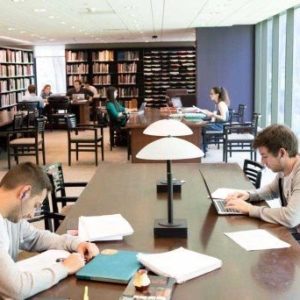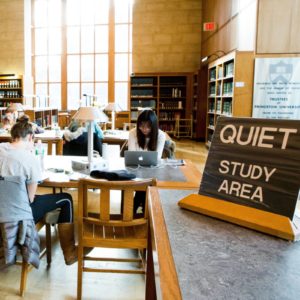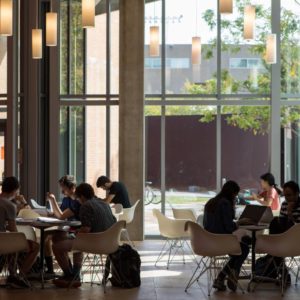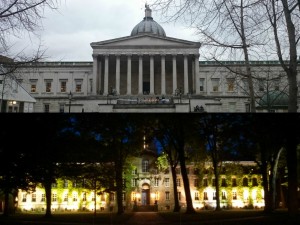With midterms being in full swing this week, you’ve most likely started reviewing concepts and studying for these exams. However, another crucial part of the preparation process is to readjust to the in-person exam experience. After a year and a half of taking exams virtually, it is important to recognize that exams in the classroom will look and feel very different, so don’t let that take you by surprise. Whether you are studying for midterms or want to start thinking about final exams, here are a few key tips when it comes to taking exams at Princeton in person:
Continue reading Back to the Classroom: How to Readjust to In-Person ExamsTips and Tricks: How to Stay on the Grind during Winter Break

Winter break: a month (hopefully) full of rest and relaxation. The weeks after winter break: minimal hours of sleep and high levels of stress for pretty much all Princeton students. When the time comes, it is non-stop work until finals are over. If you are anything like me, it is easy to trick yourself into feeling like there is no work to be done over winter break. You get lulled into this false sense of reality, one in which your papers and exams aren’t due for another month. So, you binge-watch a Netflix show (or a few) and sleep in. However, this makes you susceptible to getting hit, hard, by the work waiting for you when you get back to campus. This is something I was afraid of during my first year here, so I did everything I could to overcompensate for this possibility. I ended up working throughout the entire break, not really giving myself any time to relax, which was not ideal, and I saw others who didn’t work at all, which also was not ideal. By junior year, after many trials and errors, I’ve figured out some tips that work for me to achieve a happy medium between rest and productivity over winter break.
Continue reading Tips and Tricks: How to Stay on the Grind during Winter Break
How to Get Ready to Study for Midterms

It’s hard to believe, but Fall 2018 midterms are coming up. Perhaps your professors have begun to talk about past exams or paper topics. Or maybe you’re just looking at some ominous exam dates on the syllabus, poised like a roadblock between you and the glorious week of Fall Break. Friends, I’m here to tell you that it’s going to be alright. Whether these are your first fall midterms or your last (!), this post will share some surefire strategies that you can use to get yourself ready for the first major round of testing of the academic year. While I will share some specific study strategies, I’ll mainly focus on steps you can take to get yourself ready to study. That way, when the studying actually begins, you’ll have greater peace of mind knowing that you have an overall plan for the week. Continue reading How to Get Ready to Study for Midterms
How to Take a Productive Break

Every exam period, I find myself starting to withdraw from any non-mandatory activities or commitments. While this may seem like a good idea—after all, I need to make time to study in my already full schedule—it has oftentimes proven to be counterproductive. While I do get time back from skipping other activities, more often than not, I actually squander most of that time being stressed instead of using it in a productive way. This is the result of a combination of incorrect assumptions on my part. Continue reading How to Take a Productive Break
Five Tips to Tackle Winter Break

In a few days, I’ll be home in sunny Kona, Hawaii. I haven’t been back since June, and by now I’m hankering to feel the warm Pacific on my skin. I’m going to eat homemade chocolate truffles, free-dive with my dad, catch up with old friends…and also write an entire junior paper, and review a semester’s worth of organic chemistry. Gulp.
Last Friday, hoping to figure out how to juggle it all, I attended a workshop at the McGraw Center: Balancing Work and Play During Winter Break. Here are five essential take-aways:
Mid-Semester Reflections: An Introspective Research Project

Alas, fall break is over; but it’s not too soon to reminisce. During our time off, the semester finally began to decelerate (at least until finals come around). For the first time in over 6 weeks, I had time to catch up with friends whom midterms shielded me from. I was able to relax and watch Sunday Night Football without the stack of problem sets on my desk reminding me of my academic responsibilities. And perhaps most importantly, fall break presented an opportunity for me to take on a new kind of research project, as I reflect on yet another quarter at Princeton.
So far, these mid-year “introspective research” projects have really helped me improve my overall experience here. While classes are in session, I usually can’t afford to take a few days off to reflect on life, but when I get the opportunity, I take it immediately. Just as scientific researchers go through several trials to improve their projects, I find it immensely helpful to periodically sit back and think about how I can continuously improve my quality of life in the Orange Bubble. After all, the subject of this ‘project’ is me – I’m the experiment that can be infinitely refined. But unlike laboratory research where finding novel ideas is difficult, it’s really quite simple to give oneself effective advice going forward. All it takes is a little bit of self-reflection and time spent towards developing a plan for the future.
Continue reading Mid-Semester Reflections: An Introspective Research Project
A Global Look at Educating Researchers

Lectures & Course Readings
Princeton: Many of my Psychology courses at Princeton were structured around a pre-assigned textbook. This practice helped with giving the course an understandable and predictable composition, with each lecture matching up closely with the units of the assigned reading material. Although professors generally provided supplementary information not found in the textbook, common themes and key elements of the course could be identified through the textbook readings.
UCL: Every lecture I have attended thus far at UCL has been heavily based in current research literature. The assigned readings are the research articles themselves. In the lecture, the professor typically picks a topic related to the course, then discusses current research on the topic, emphasizing both the merits and shortcomings of various studies. It is then discussed how the studies interact with one another, showcasing how newer studies are able to strengthen or disprove claims made by previous studies through replicating or altering experimental designs. Continue reading A Global Look at Educating Researchers


